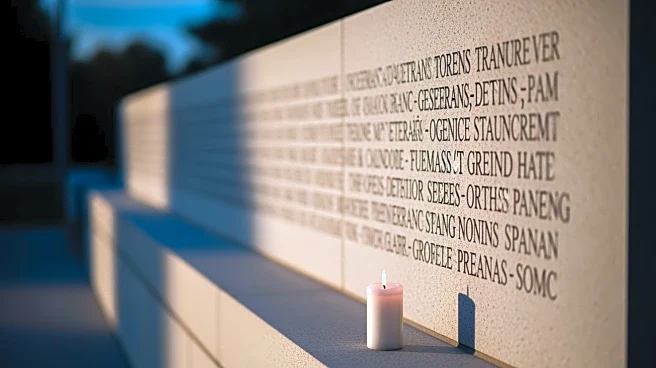What's Happening?
Dr. Hussam Abu Safiya, a prominent Gaza doctor and head of Kamal Adwan Hospital, has had his detention extended by an Israeli court for another six months. Abu Safiya was initially detained by Israeli forces in December 2024 during an offensive in Gaza.
His detention has been extended without charge, despite hopes for his release under a ceasefire deal. The Israeli military had previously accused him of involvement in terrorist activities, claims which his family and colleagues have rejected. Abu Safiya's detention has raised concerns among human rights groups and medical organizations, as he was known for his efforts to protect patients and medics during the conflict.
Why It's Important?
The extension of Dr. Abu Safiya's detention highlights ongoing tensions between Israel and Gaza, particularly affecting the medical community. His continued detention without charge raises human rights concerns and impacts the healthcare system in Gaza, where medical professionals are already under strain due to the conflict. The situation underscores the challenges faced by healthcare workers in conflict zones and the potential implications for international humanitarian efforts. The case also reflects broader issues of administrative detention practices by Israeli authorities, which have been criticized by human rights organizations.
What's Next?
The extension of Abu Safiya's detention may lead to increased advocacy from human rights groups and medical organizations calling for his release. The situation could further strain relations between Israel and Gaza, potentially impacting future ceasefire negotiations. International attention may focus on the treatment of detainees and the conditions faced by medical professionals in conflict areas. The Israeli government may face pressure to address the concerns raised by human rights groups regarding administrative detention practices.
Beyond the Headlines
The detention of Dr. Abu Safiya raises ethical questions about the treatment of medical professionals in conflict zones and the use of administrative detention without charge. It highlights the vulnerability of healthcare systems in areas of conflict and the potential long-term impact on public health. The case may prompt discussions on international legal standards for the protection of medical workers and the need for transparent legal processes in detention cases.

















